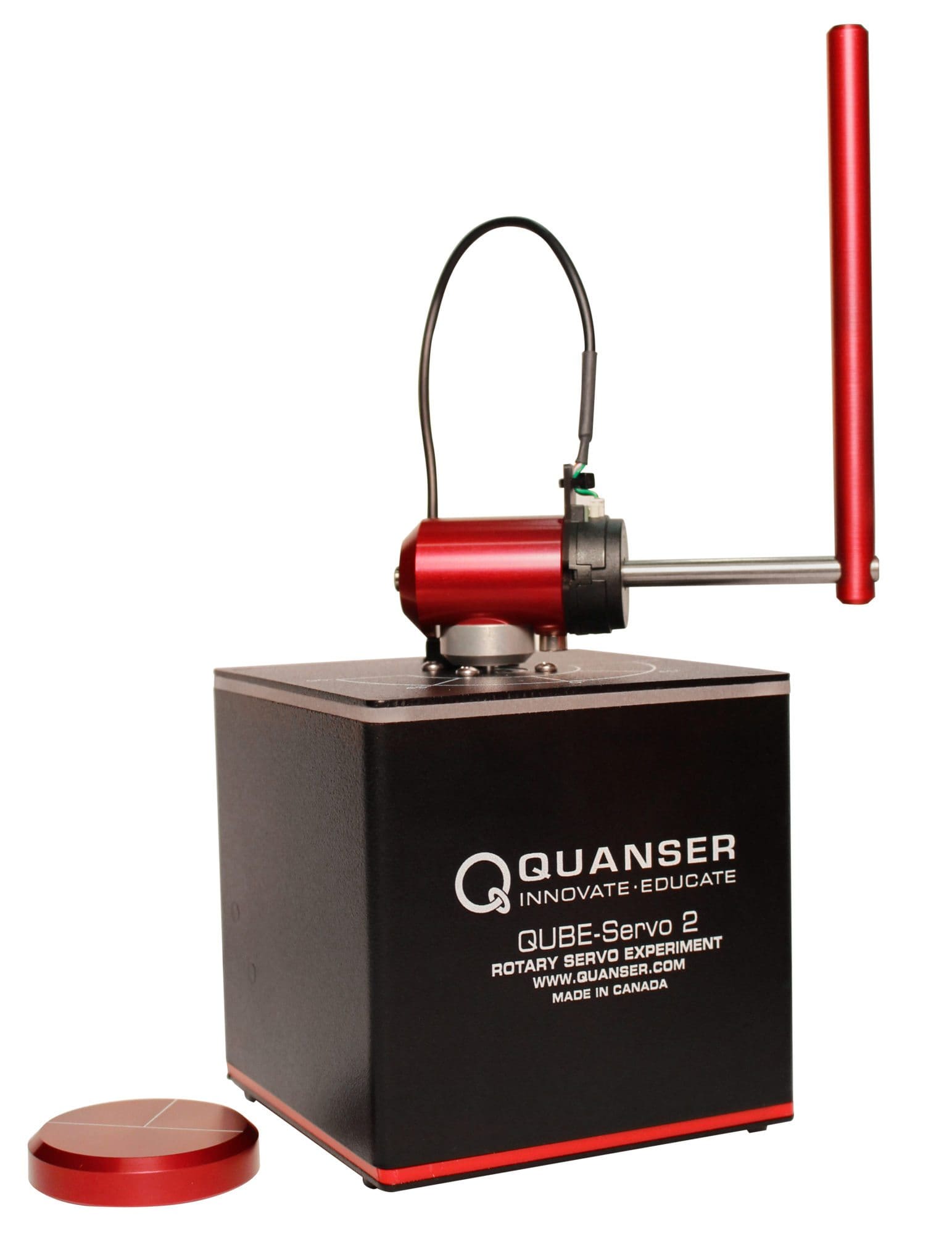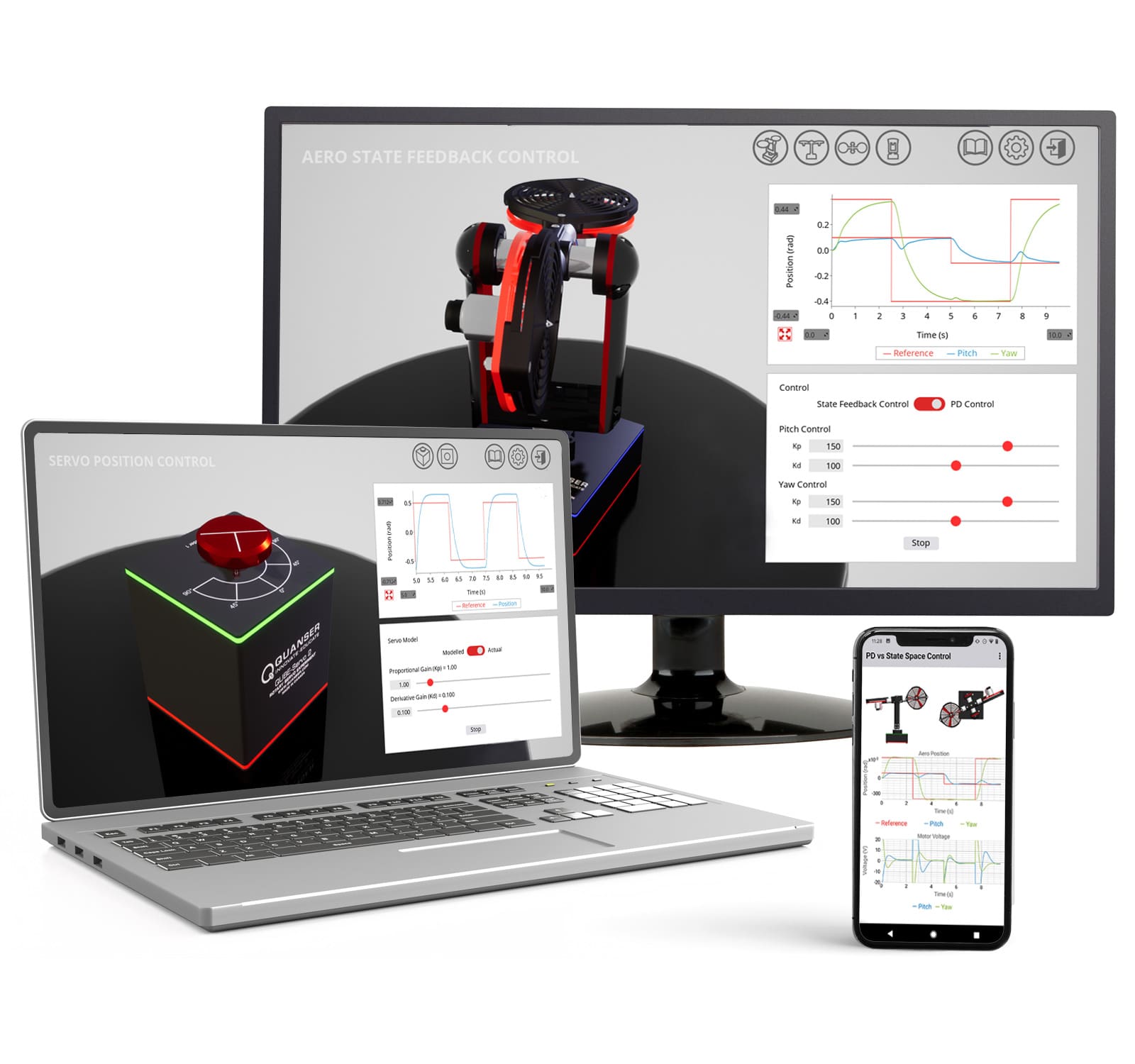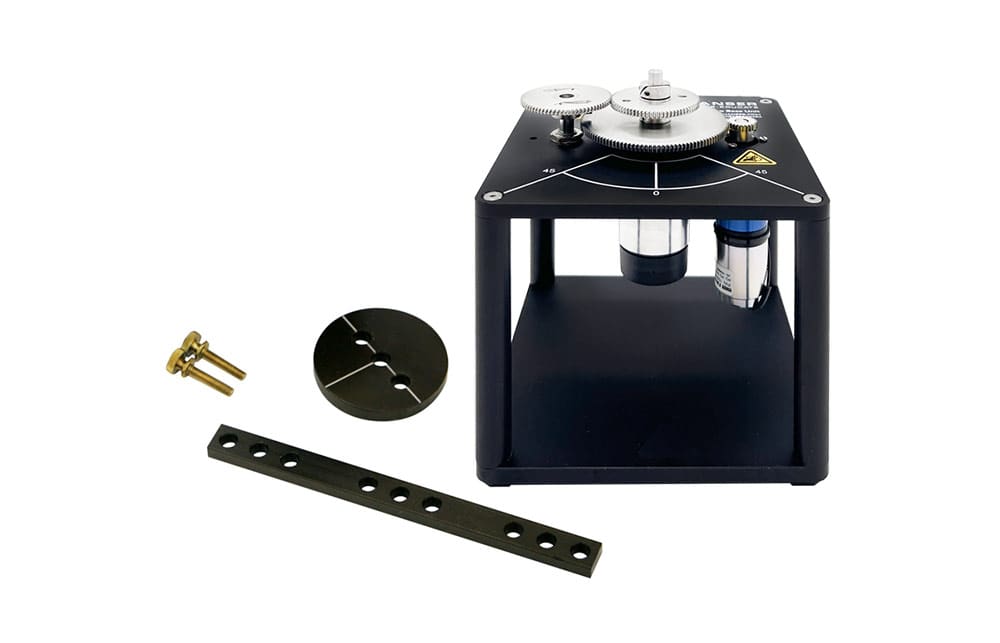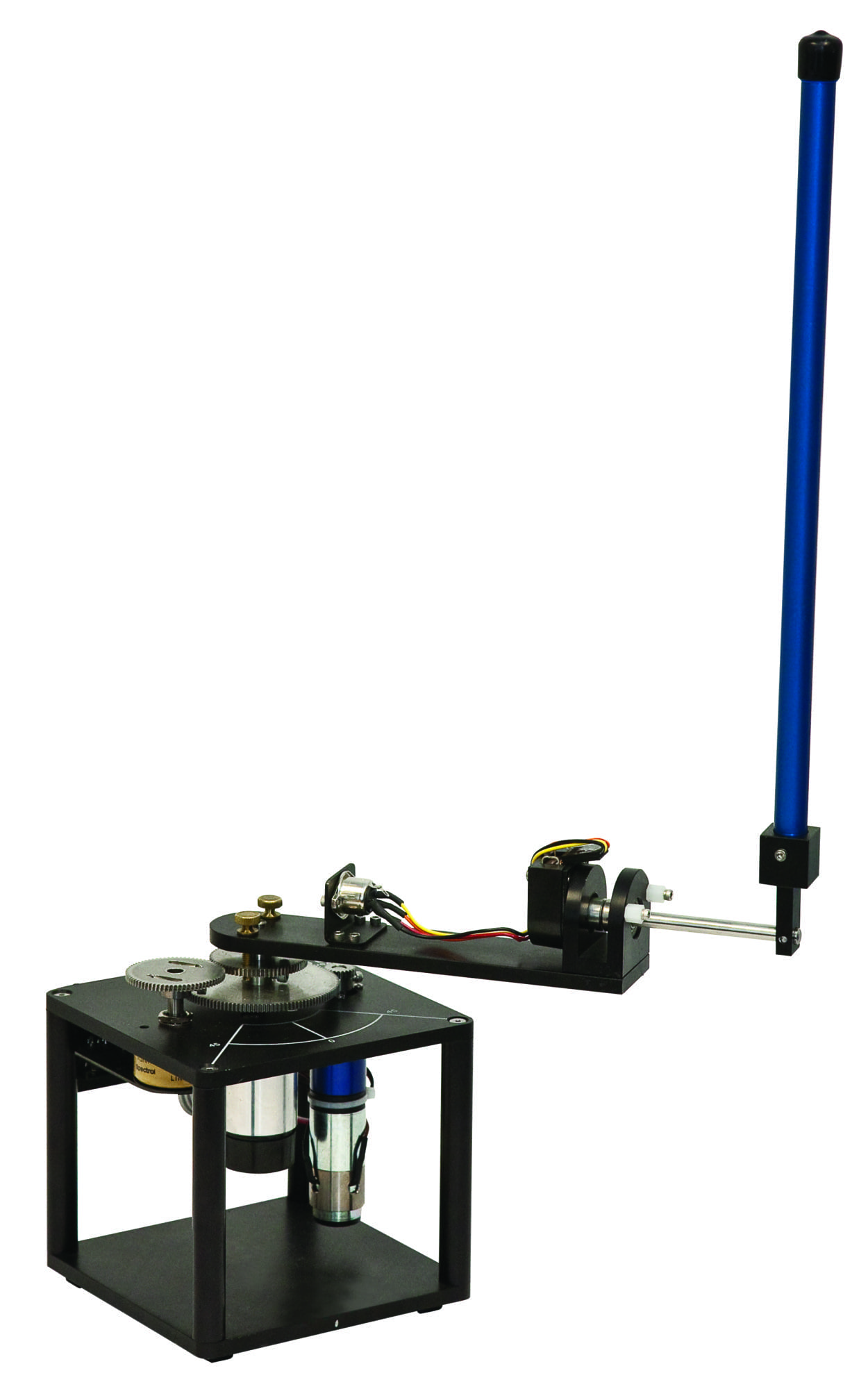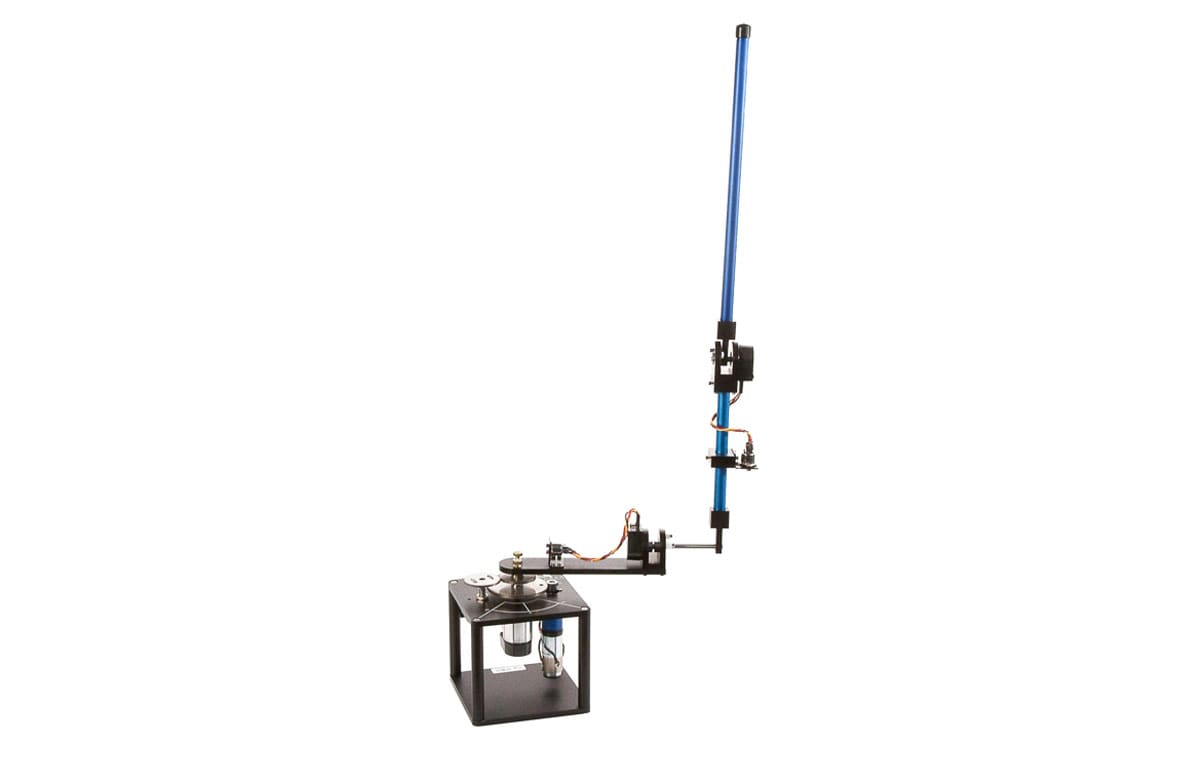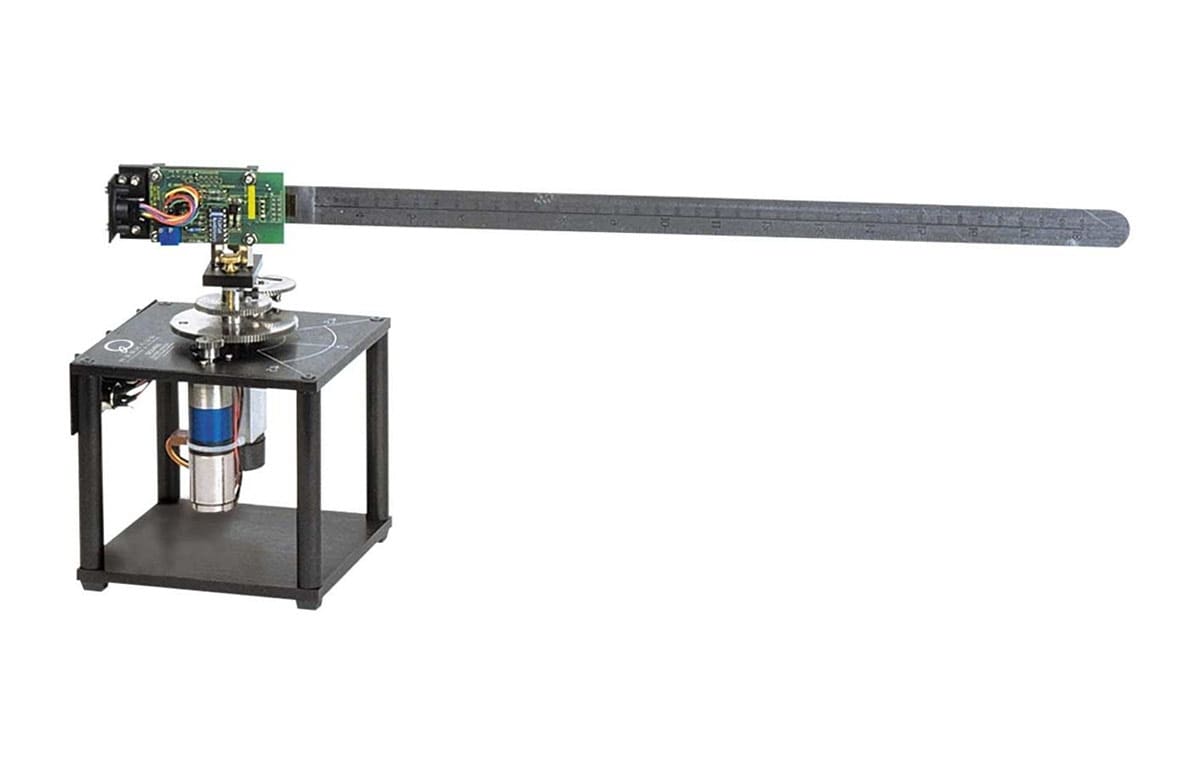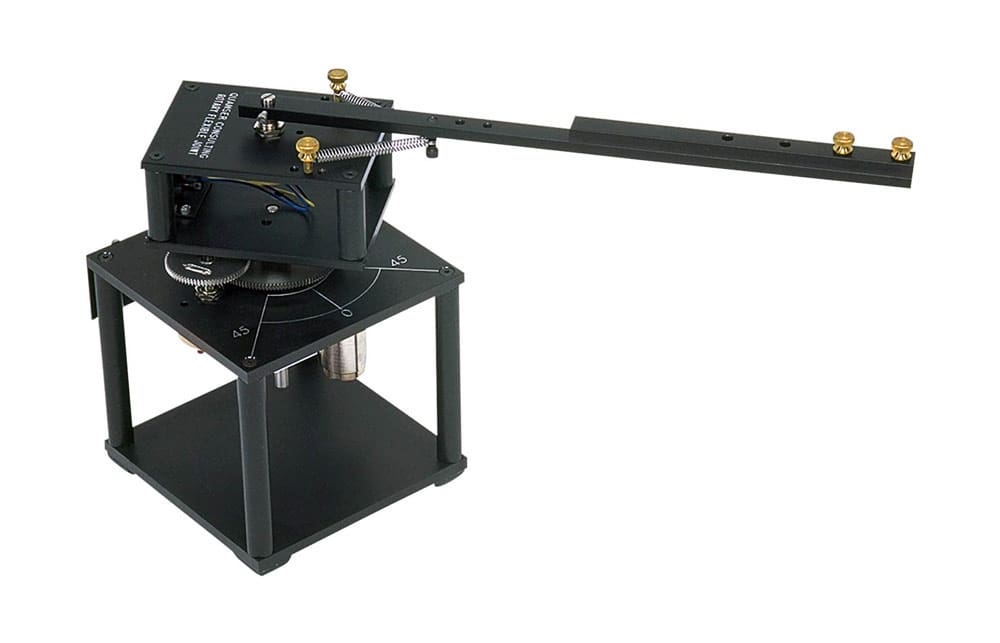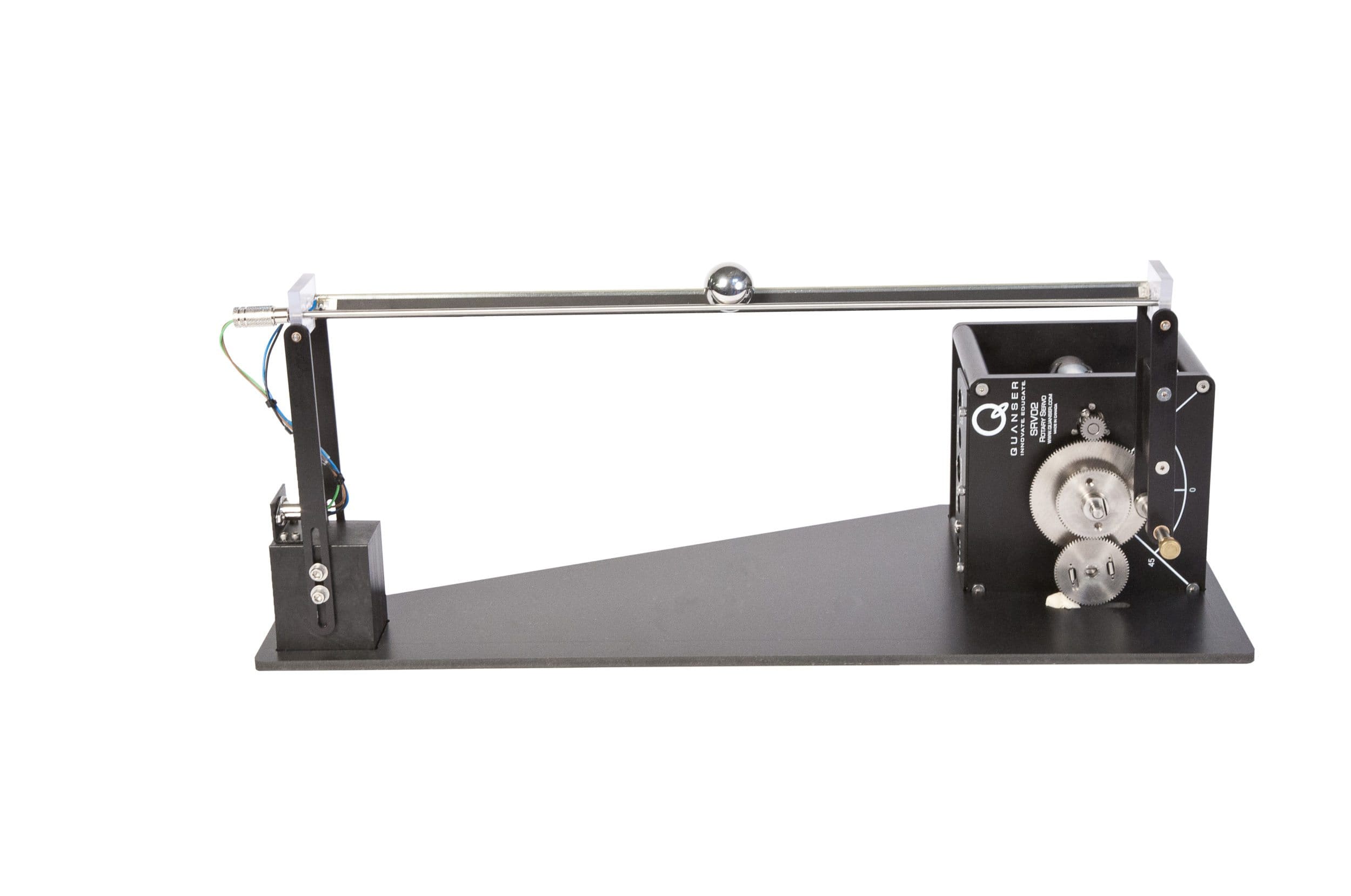QLabs Virtual Rotary Servo
Virtual platform for distance and blended undergraduate control systems courses
QLabs Virtual Rotary Servo is a fully instrumented, dynamically accurate digital twin of a classic Rotary Servo Base Unit system. It behaves in the same way as the physical hardware and can be measured and controlled using MATLAB®/Simulink® and other development environments. With QLabs Virtual Rotary Servo, you can enrich your lectures and activities in traditional labs, or bring credible, authentic model-based lab experiences into your distance and online control systems course.
QLabs Virtual Rotary Servo is available as a 12-month, multi-seat subscription. The platform is compatible with the physical Rotary Servo Base Unit curriculum, which covers modelling, position, and speed control topics.
Product Details
Same as the physical Rotary Servo Base Unit, the virtual system features a DC motor that drives a smaller pinion gear. This gear is fixed to a larger middle gear that rotates on the load shaft. The position of the load shaft is measured using a high-resolution optical encoder or a potentiometer.
- High-fidelity, credible lab experiences equivalent to use of physical lab equipment
- 12-month, multi-seat subscription
- Full access to system parameters through MATLAB®/Simulink®
- ABET-aligned curriculum
| App download & access to subscription management | Quanser Academic Portal |
| App OS compatibility | Microsoft Windows 10 or later |
| Required software | Curriculum designed for MATLAB and Simulink R2021a or later, with compatibility with Python 3 |
| Minimum system requirements | Video Card: Intel HD 520 or equivalent DX11 GPU Processor: Core i5-6300U series mobile CPU or equivalent Memory: 8 GB RAM |
| Recommended system requirements | Video Card: Intel UHD 620 or equivalent GPU Processor: Core i7-8665U series mobile CPU or equivalent Memory: 16 GB RAM |
Modeling Topics
- First-principles derivation
- Experimental derivation
- Transfer function representation
- Frequency response representation
- Model validation
Control Topics
- PID
- Lead Compensator
- Steady-state error
